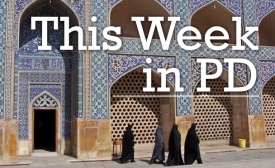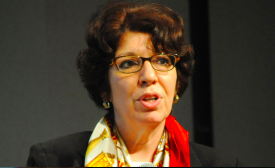Cultural Diplomacy
Young Chinese chefs will be learning Italian traditions and recipes from Italian Gambero Rosso culinary experts. Culture and food diplomacy will be showcased at Expo Milano 2015 after five agreements signed by the two countries for culture and creative industries.
As for the Colombian cultural presence, the Embassy has been dedicated to promote moments of reflection through artistic joy. [...] as part of the successful programme of the Foreign Ministry through the Directorate of Cultural Affairs and the embassies, called "Colombia Promotion Plan Abroad", that seeks to develop official cultural diplomacy projects.
A former Ambassador to the United States, Dr. Singh, who held various portfolios as a Union Minister, said while India expands her presence globally through political and economic engagements, it also needs to focus on forging relations through cultural diplomacy.
Touring Swan Lake in China is not the kind of cultural diplomacy that will help Australia gain a foothold in Asia.[...] The arts sector must engage with Asia and other parts of the world on cultural terms.

Headlines this week in PD News followed the historic nuclear negotiations between Iran and global powers and the role public diplomacy will play in normalizing relations.

Encouraging emerging PD scholars, contributing to the CPD Blog, and research for a book on public diplomacy and identity.
After an all-out four-day weekend in Los Angeles, Anime Expo closed its doors for another year on July 5. Finally, Marc Perez has a few moments to breathe. “The hours are very nice a couple of months out of the year,” the CEO of the Society for the Promotion of Japanese Animation (SPJA), says of his job. Then it’s another 11 months of pre-con crunch time.







